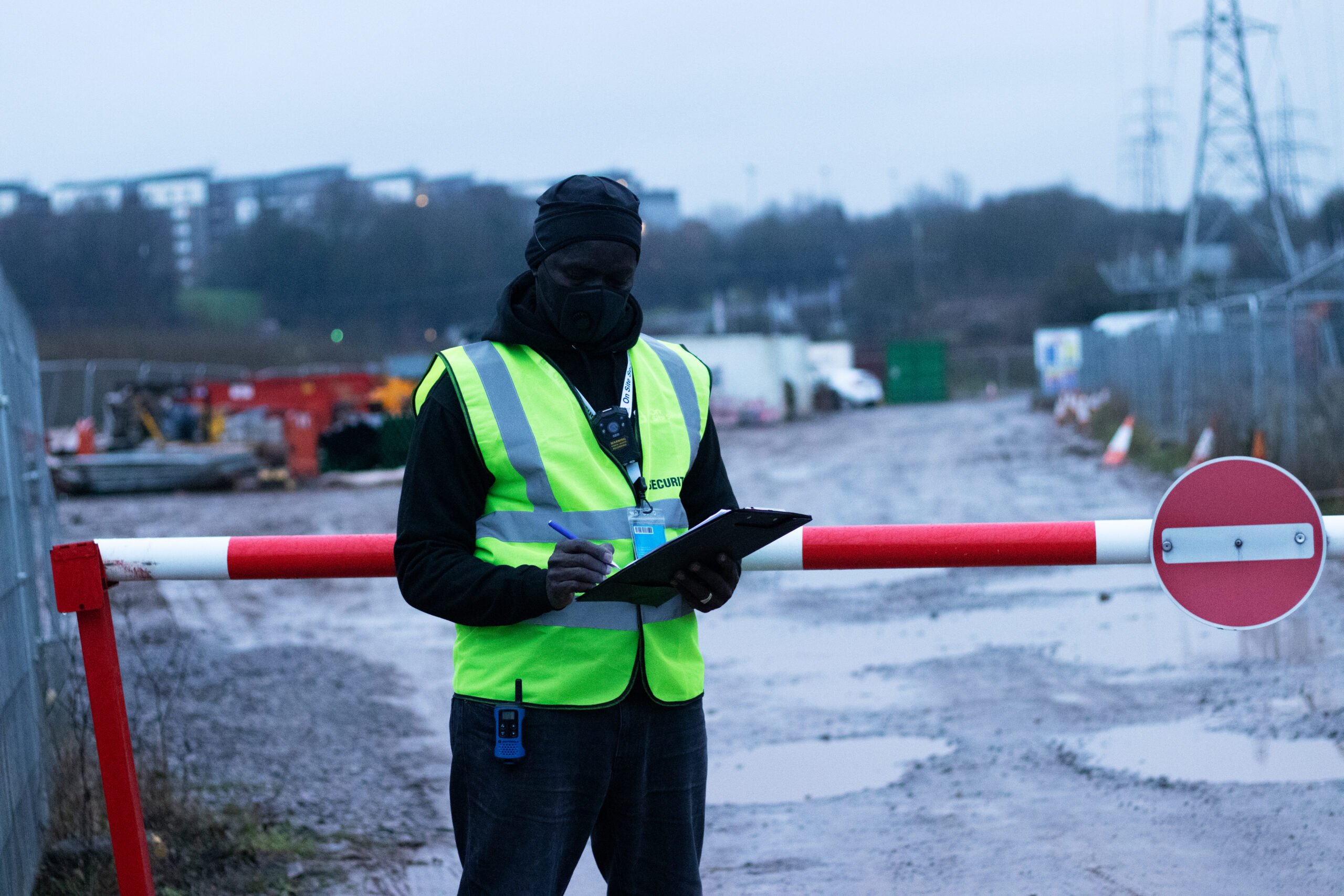5 Things To Remember When Planning Your Construction Site Security
Construction sites can be attractive targets for criminals, whether they’re looking to steal equipment or just cause mischief. It’s important to take steps to secure your site and keep everyone safe. Here are five things to remember when planning your construction site security.
1. Security is Not a one-time event – It’s an Ongoing Process that Needs to be Planned and Executed Properly
The construction industry often deals with highly valuable materials and equipment, making construction site security especially important.
However, it’s not enough to simply install cameras – security must be an ongoing process. Regular risk assessments and communication with all contractors and construction personnel can help identify potential vulnerabilities and ensure that necessary measures are being taken.
In addition, construction sites often see a high turnover rate of workers, making access control critical. Frequent background checks and regularly updated access lists can prevent unauthorized individuals from gaining entry to the site.
In short, construction site security is not a one-time event – it requires careful planning and consistent execution to protect materials, equipment, and personnel.
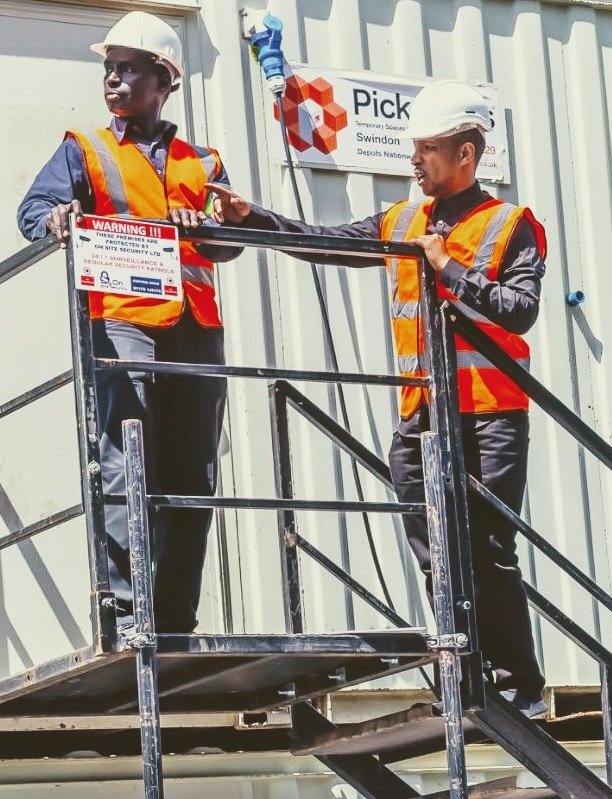
2. Your Security Plan Should be Tailored to Your Specific Site and its Unique Security Risks
When it comes to security, one size does not fit all. A construction site requires different considerations than a retail store, and the same construction site could have wholly different needs depending on its phase of development or the materials being used.
That’s why it’s important to tailor your security plan to your specific site and its unique risks. From construction site security guards to surveillance cameras, the measures you take should address the specific vulnerabilities of your location and industry. Not only will this allow you to prevent typical risks, but it can also help you anticipate and react swiftly to unexpected threats.
In short, a tailored security plan is simply the most effective way to protect your site and assets.
3. Make Sure you Have the Right People in Place to Carry out Your Security Plan
When it comes to construction site security, having the right people in place is key. A construction site guard not only serves as a physical presence on the property but also acts as a deterrent for potential intruders or thieves.
They can patrol the premises, monitor entrances, and exits, and respond to any emergency that may arise.
Additionally, they can provide insight into potential weak points in the security plan and suggest improvements. Without properly trained and competent guards, construction sites may be left vulnerable to theft and damage.
Ultimately, carefully selecting individuals for construction site security positions can make all the difference in ensuring the safety of the property.
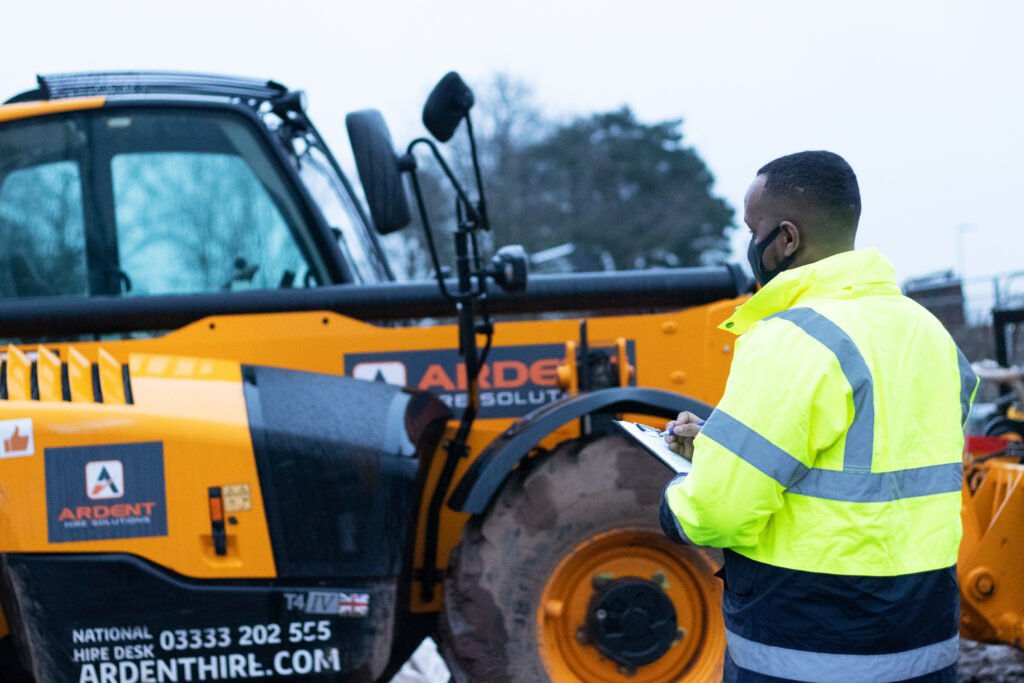
4. Regularly Review and Update Your Security Plan as Needed
First and foremost, construction sites are constantly evolving environments. New construction projects begin, older ones are completed, and the layout of the site can continuously change. As such, it is important for construction site security guards to regularly review and update their security plans to stay prepared for any new potential hazards or access points on the site.
Secondly, construction sites often attract outside individuals who may be looking to steal materials or equipment. Regularly reviewing and updating the security plan helps to identify any weak points in the current system and implement necessary changes in order to deter would-be thieves.
Finally, construction sites can also be dangerous places for both workers and visitors alike. By regularly reviewing and updating their security plans, construction site security guards can ensure that all necessary safety measures are in place to protect those on the premises.
In short, regularly reviewing and updating a construction site’s security plan is essential in ensuring the safety of workers, deterring theft, and staying prepared for any changes on the construction site.
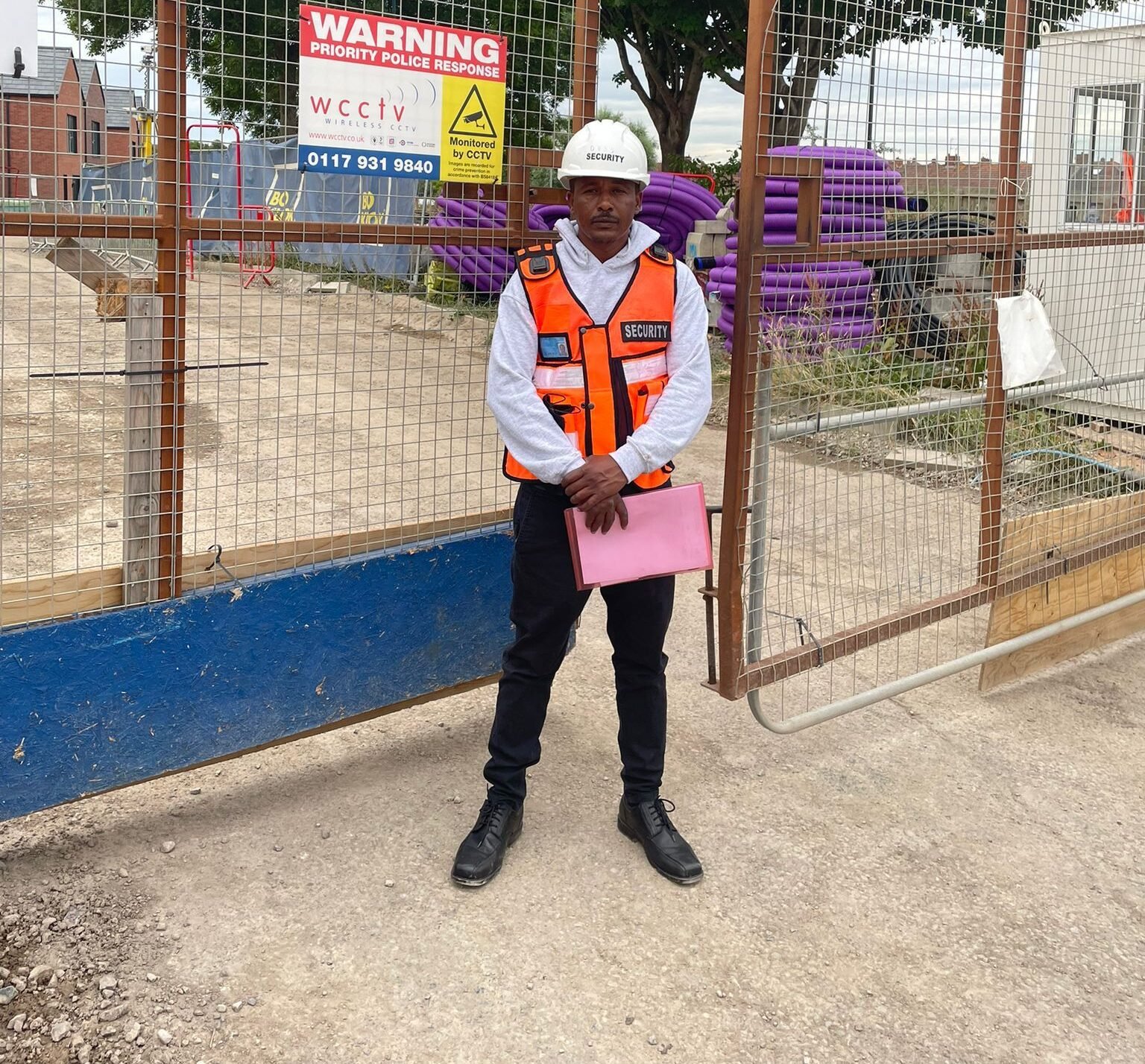
5. Don’t Forget About the Importance of Communication and Coordination Between all Members of Your Team
Effective communication and coordination between all members of a construction team are vital for not only productivity and efficiency but also safety. Consider the role of a construction site security guard: if they are not properly informed about the construction schedule and specific tasks being completed each day, they may not be able to properly secure the construction site.
Here are 5 Ways of Communication and Coordination Between all Members of Your Team:
1. Establish Clear Communication Channels and Protocols
The key to establishing clear communication channels and protocols within a team is setting expectations and identifying points of contact.
- First, make sure all team members have access to the same channels of communication – whether it be email, a group chat, or daily check-ins at the construction site.
- Then, designate specific team members as the go-to contacts for each aspect of the project. For example, a construction site security guard may not need to be included in all discussions about design plans, but they should be the point of contact for any questions related to site security.
- In addition, establish a protocol for how and when team members should communicate – for example, setting guidelines for response times or asking that non-urgent issues be discussed during weekly meetings.
By identifying these expectations and contact points upfront, the entire team will have clearer channels of communication.
2. Use a Project Management Tool to Keep Everyone on Track
With a project management tool, managers can easily assign tasks to team members and track progress in real time. This not only streamlines workflow and increases productivity, but it also helps prevent miscommunications or missed deadlines.
Furthermore, it allows for seamless collaboration between team members, regardless of physical location.
Additionally, a project management tool can also help with construction site security by giving guards a clear understanding of who should be on site at any given time. In short, utilizing a project management tool is an essential component of effectively managing a team and keeping construction sites secure.
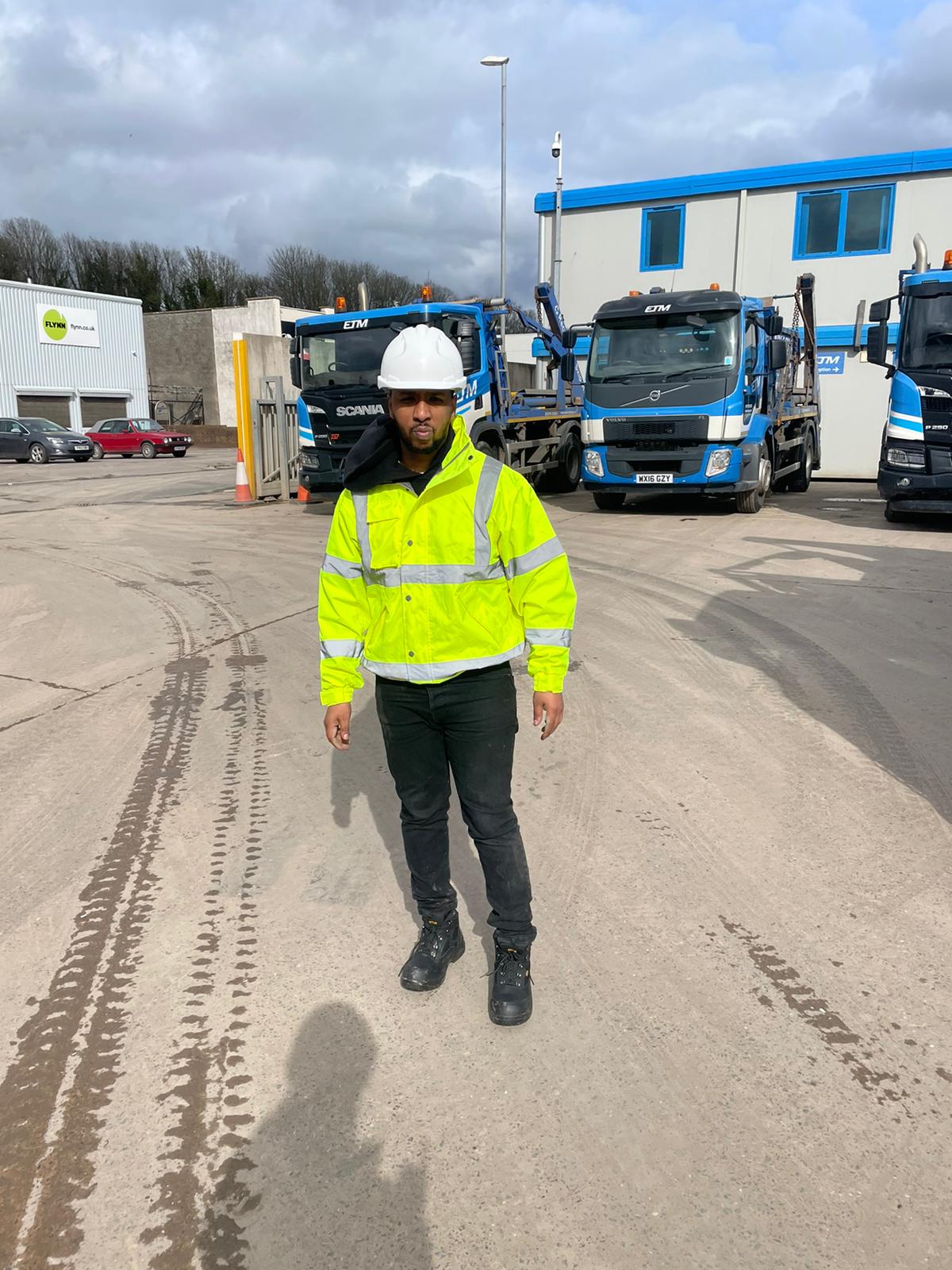
3. Make Sure Team Members are Aware of Each Other’s Deadlines and Responsibilities
Communication is key when it comes to meeting deadlines and ensuring that everyone on the team is aware of their responsibilities.
One effective method is to have regular meetings where team members can update each other on their progress and any potential roadblocks. It’s also important to have a central place, whether physical or virtual, where all tasks and deadlines are listed.
Additionally, assigning a specific member to act as a liaison or project manager can help maintain clear communication and accountability among team members.
While construction sites may also require the presence of a security guard for safety reasons, it’s crucial for all team members to take responsibility for keeping each other informed and on track in order to ensure successful outcomes.
4. Encourage Open Dialogue and Collaboration
When construction sites encourage open dialogue and collaboration between workers, supervisors, and construction site security guards, it can significantly improve safety on the job.
In a collaborative environment, construction site security guards can more easily share important information about potential hazards or suspicious activity, as well as offer suggestions for mitigating these risks.
Similarly, construction workers can feel comfortable speaking up about any concerns they may have about their work environment. This ultimately leads to a stronger safety culture on the construction site and fewer avoidable accidents.
Additionally, open dialogue and collaboration among construction teams can also lead to improved efficiency and productivity in completing projects. With all parties communicating effectively and working together towards common goals, construction projects can run smoother and meet deadlines more successfully.
Overall, encouraging open dialogue and collaboration on construction sites is essential for improving safety, effectiveness, and overall success.
5. Celebrate Successes Together!
Celebrating successes as a team has a myriad of benefits, both individual and collective. It helps to foster camaraderie and unity among team members, leading to increased morale and motivation.
On construction sites, for example, a strong sense of teamwork can be crucial for safety and security. Celebrating successes together can also help to maintain a positive company culture, leading to higher retention rates and overall job satisfaction.
Furthermore, acknowledging accomplishments as a group shows that everyone’s contributions are valued and important, creating an environment where individuals feel supported in taking risks and trying new ideas.
In the end, celebrating successes together not only fosters a positive work atmosphere but also improves overall productivity and success as a team.
Conclusion paragraph:
Construction site security is an ongoing process that needs to be planned and executed properly in order to effectively protect your workers, equipment, and materials. Your security plan should be tailored to your specific site and its unique security risks. Make sure you have the right people in place to carry out your security plan and regularly review and update it as needed. Don’t forget about the importance of communication and coordination between all members of your team. If you have any questions, feel free to contact us. Thank you for reading and please like and subscribe.

